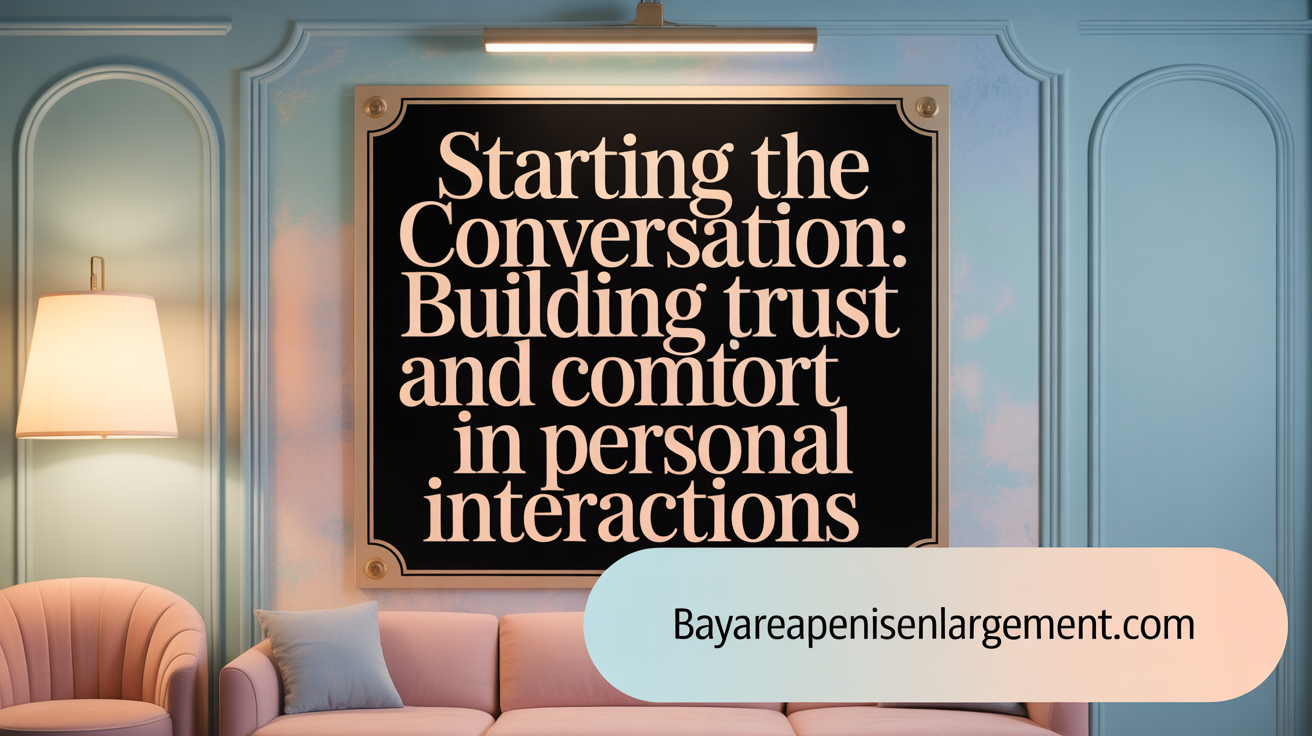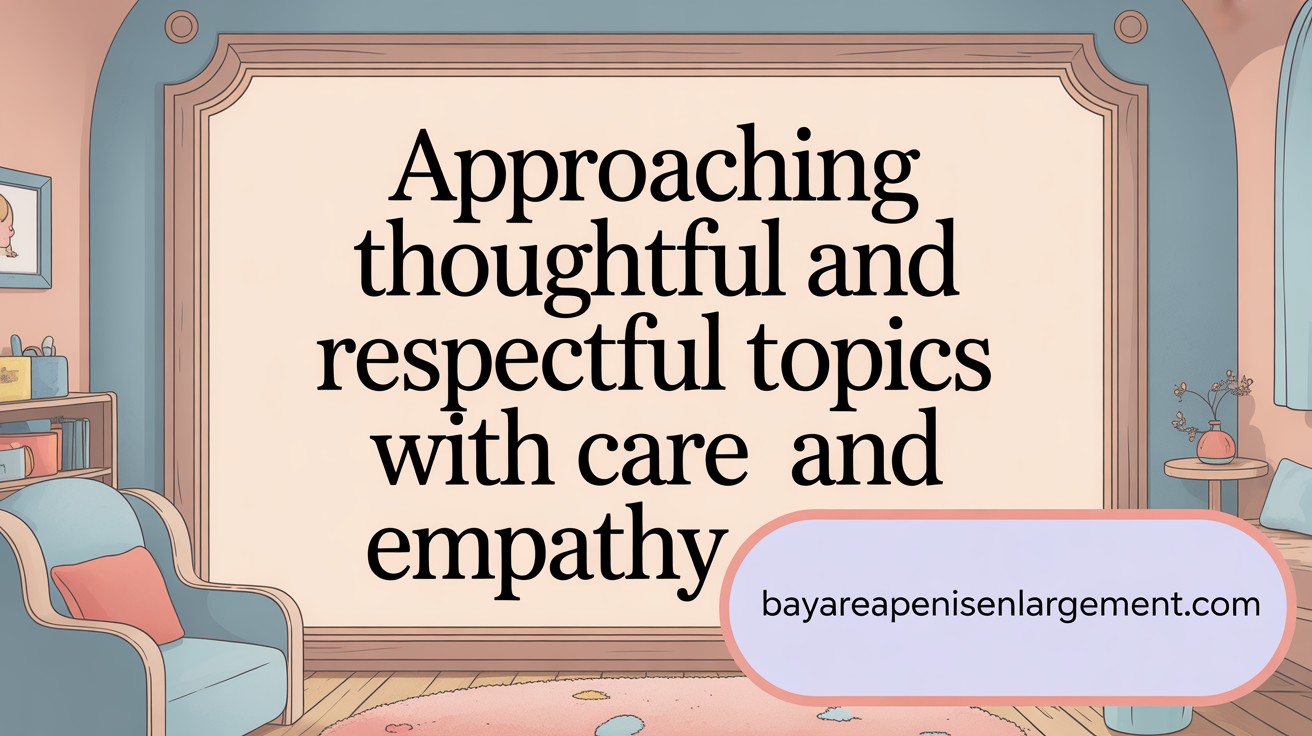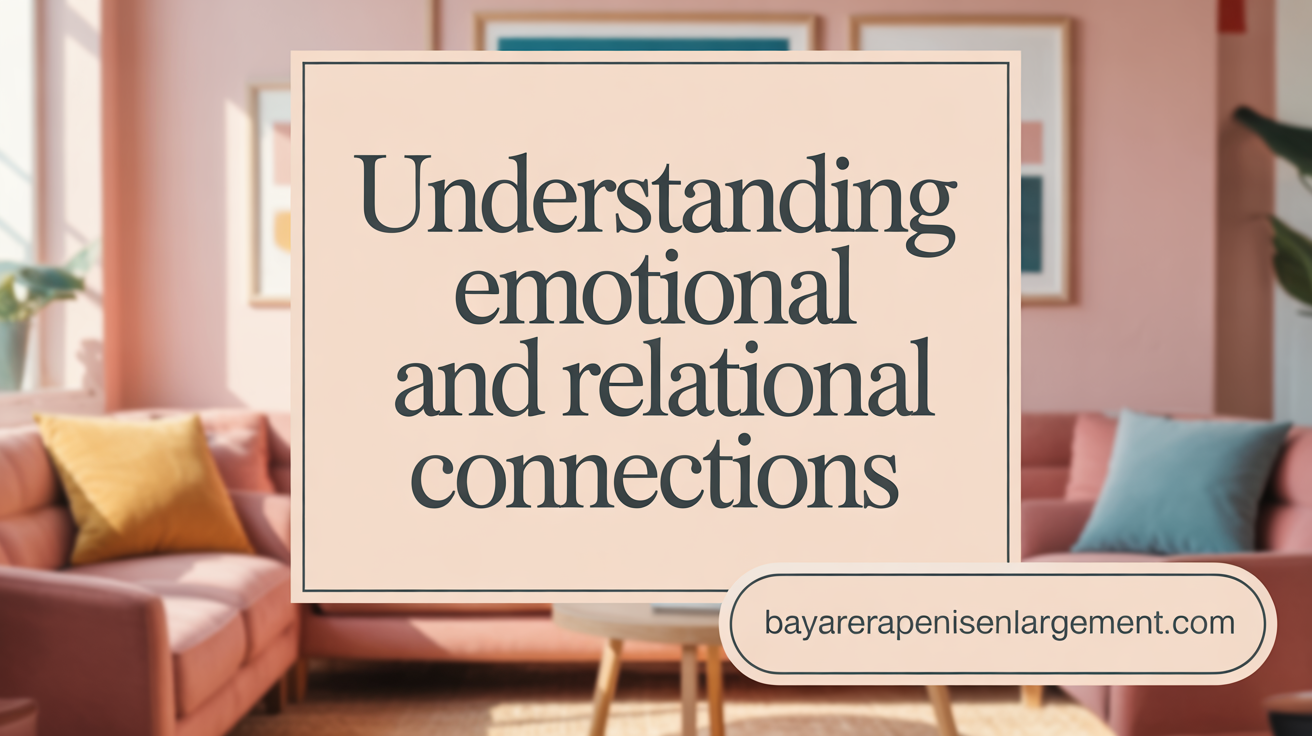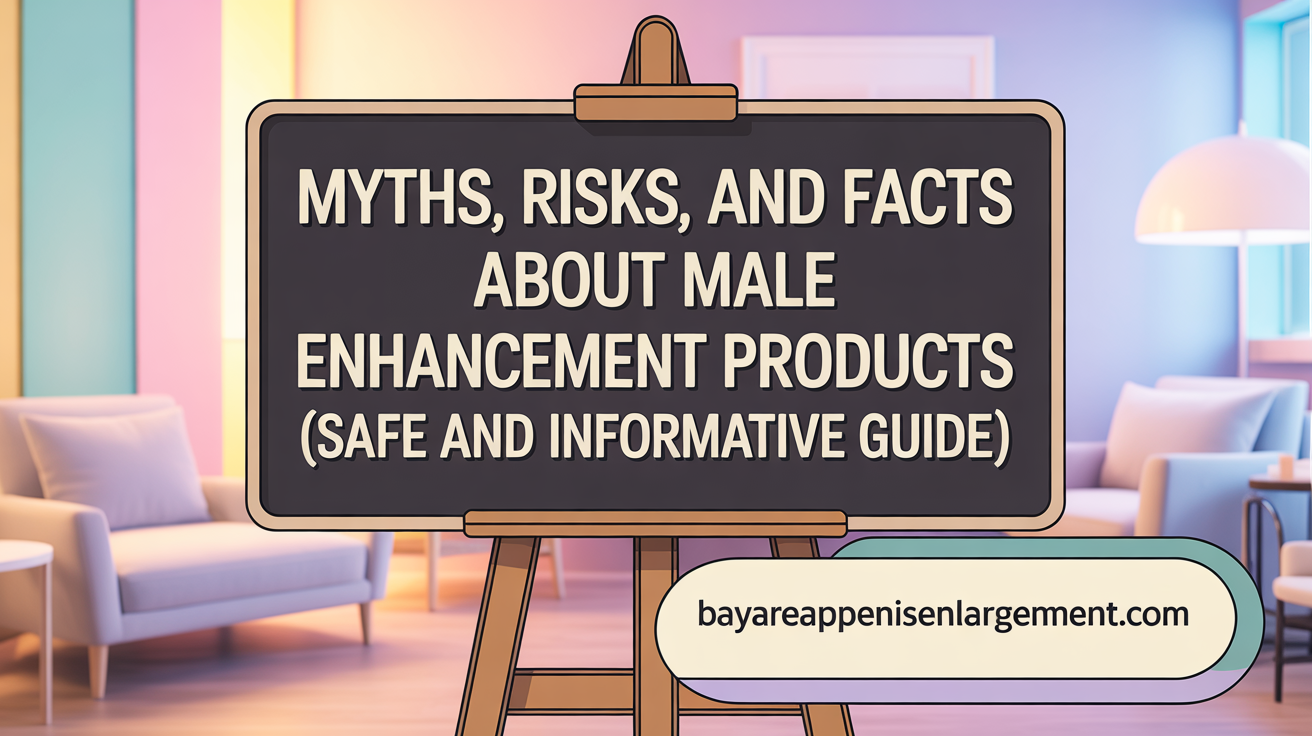Opening Up the Conversation About Male Enhancement
Discussing male enhancement and erectile dysfunction (ED) can be challenging for many couples due to societal taboos, embarrassment, and misconceptions. However, open and empathetic communication is vital for maintaining intimacy and fostering a supportive relationship. This article outlines practical strategies to initiate and manage these sensitive discussions with respect, understanding, and medical insight, helping partners navigate emotional and relational challenges together.
Starting the Conversation: Effective Communication Techniques and Managing Sensitivities
 Discussing erectile dysfunction and male enhancement with a partner can be sensitive, but open and honest communication is essential for a healthy relationship and effective treatment. Choosing the right moment and setting is crucial. Find a private, relaxed environment where both partners feel comfortable, ideally when neither is under stress or pressure, such as not immediately after intimacy.
Discussing erectile dysfunction and male enhancement with a partner can be sensitive, but open and honest communication is essential for a healthy relationship and effective treatment. Choosing the right moment and setting is crucial. Find a private, relaxed environment where both partners feel comfortable, ideally when neither is under stress or pressure, such as not immediately after intimacy.
Partners should approach the topic with empathy and support. Educating oneself about ED as a common and treatable condition helps reduce feelings of shame or blame. Using gentle language and emphasizing that ED is not a reflection of attraction or effort can ease tension.
Effective techniques include employing active listening—giving full attention and validating each other's feelings—and using "I" statements to express personal experiences or concerns without sounding accusatory. It’s helpful to maintain a non-judgmental tone and to be patient, allowing space for honest dialogue.
Creating a safe environment encourages openness. Asking open-ended questions about desires, boundaries, and feelings fosters understanding. Small steps, like discussing non-sexual forms of intimacy or exploring new ways to connect, can also strengthen emotional bonds.
Supporting a partner in seeking medical advice or therapy demonstrates care. Remember, normalized discussions about ED can lessen stigma, making it easier to face challenges together. Ultimately, clear, compassionate communication helps clarify expectations, reduces anxiety, and promotes mutual support, which are vital for maintaining intimacy and working through sexual health issues.
Approaching Sensitive Topics with Tact, Empathy, and Respect
 Discussing male sexual health issues, such as erectile dysfunction (ED) or penis enlargement, requires a careful and considerate approach. Effective communication begins by choosing the right moment—a relaxed, private, and pressure-free environment helps set a positive tone. Starting the conversation with reassurance and expressing genuine concern fosters trust and openness.
Discussing male sexual health issues, such as erectile dysfunction (ED) or penis enlargement, requires a careful and considerate approach. Effective communication begins by choosing the right moment—a relaxed, private, and pressure-free environment helps set a positive tone. Starting the conversation with reassurance and expressing genuine concern fosters trust and openness.
Using gentle language and metaphors can reduce intimidation, making it easier for your partner to share their feelings. Validating their emotions, regardless of their response, shows empathy and reduces shame or embarrassment. It’s vital to acknowledge that ED can result from various physical or psychological factors, emphasizing that it is a common and treatable condition.
Respecting individual differences and cultural backgrounds is also important. Tailoring your approach to suit your partner’s social context and beliefs demonstrates understanding and sensitivity. For instance, some may feel more comfortable discussing these issues after gathering information or consulting a healthcare professional.
Supporting each other involves active listening, expressing support without blame or teasing, and encouraging medical or therapeutic consultation if needed. Often, involving support persons or professionals helps create a safe, constructive space for ongoing dialogue.
In cases of exploring treatments like penis enlargement, clear and honest conversations about motivations and expectations are essential. Recognizing that men may seek such procedures for self-confidence rather than sexual performance alone can guide more supportive discussions.
Supporting your partner through this process—whether by helping them prepare questions for a doctor, accompanying them to appointments, or simply listening—strengthens the relationship. Overall, approaches rooted in empathy, patience, and respect are most effective in navigating sensitive issues related to male sexual health.
Understanding the Emotional and Relational Impacts of Male Enhancement Concerns

What are the emotional and relational impacts of male enhancement concerns within a relationship?
Concerns about male enhancement or erectile dysfunction (ED) can deeply affect both men and their partners emotionally. Men may experience feelings of embarrassment, shame, and a significant decrease in self-esteem. These emotions often lead to anxiety about sexual performance and can make men withdraw from intimacy, fearing failure or rejection.
Partners are not immune to these feelings. They might feel frustration, sadness, or concern about the relationship's future, which can create emotional distance. The mix of emotions—ranging from empathy to irritation—can add tension and strain the emotional bond.
Psychologically, ED can evoke sensations of emasculation and diminish confidence beyond physical performance, impacting mental health and daily life. Without honest communication and emotional support, these feelings can intensify, leading to misunderstandings and relationship challenges.
Talking openly about the issue, practicing empathy, and seeking support or treatment can help reduce emotional burden and rebuild trust and intimacy. Creating a supportive environment where both partners feel heard and understood is critical for navigating male enhancement concerns and maintaining a healthy relationship.
Navigating Treatment Options and Health Considerations Together

What treatment options, medical procedures, and health considerations are available for male enhancement and erectile dysfunction?
Men experiencing erectile dysfunction or seeking male enhancement have several treatment options available, ranging from lifestyle modifications to medical procedures. Lifestyle changes such as quitting smoking, reducing alcohol consumption, and engaging in regular exercise can significantly improve erectile health. Maintaining a healthy weight is also beneficial.
Medical treatments include oral medications like phosphodiesterase type 5 inhibitors, such as Viagra and Cialis. These drugs enhance blood flow to the penis, making it easier to achieve and maintain an erection. Other options include self-injection therapies, intraurethral medications, and hormone therapy, especially if low testosterone levels are identified. Vacuum erection devices can mechanically induce an erection.
When these treatments are insufficient, surgical options like penile implants or revascularization procedures might be considered. Psychological factors—such as stress, anxiety, or depression—also play a role in ED and can often be addressed through counseling or therapy.
It is crucial to consult a qualified healthcare provider to identify the underlying causes of ED or male enhancement concerns. A comprehensive assessment helps develop a tailored, safe, and effective treatment plan.
Why is professionalism and factual understanding important when discussing male enhancement treatment options?
Discussing male enhancement requires a professional and empathetic approach. Maintaining professionalism creates a safe space where patients feel comfortable sharing sensitive information, which is vital for accurate diagnosis and effective treatment planning.
Factual understanding ensures that healthcare providers offer evidence-based information about safe and proven treatments. This prevents reliance on unreliable products or unverified remedies that can be ineffective or harmful. Clinicians adhering to clinical guidelines and using standardized assessment tools demonstrate commitment to quality care.
By combining professionalism with a solid knowledge base, medical professionals can foster trust, facilitate informed decision-making, and improve treatment outcomes. For patients, this means access to credible information and appropriate interventions, ultimately leading to better management of sexual health issues.
Focusing on evidence-based therapies and clear communication helps dispel misconceptions and reduce stigma surrounding ED and enhancement procedures, supporting healthier, more satisfying relationships.
Addressing Myths, Risks, and Scientific Facts About Male Enhancement Products and Procedures

How can couples navigate myths, risks, and scientific facts related to male enhancement products and procedures?
It is crucial for couples to approach male enhancement topics with a clear understanding of what is scientifically supported and what remains unproven or risky. Reliable information can be found through reputable medical sources, such as health organizations, academic research articles, and licensed healthcare providers.
Many products marketed for penis enlargement or improved sexual performance are not backed by scientific evidence. These often include pills, supplements, or creams that claim to increase size or enhance pleasure. However, evidence indicates that such pills do not actually increase penis size—they may improve functional confidence temporarily but do not alter physical dimensions.
A significant concern is the safety of unregulated supplements. Some products may be contaminated with harmful ingredients like sildenafil or tadalafil—substances present in prescription medications for ED. These hidden components pose serious health risks, especially if taken without medical supervision, potentially leading to dangerous interactions, blood pressure issues, or other side effects.
Surgical options, such as penis enlargement procedures, can carry substantial risks including infections, scarring, and dissatisfaction with results. Non-surgical procedures like injections or shockwave therapy are considered safer but still require medical oversight.
To differentiate fact from fiction, couples should consult qualified healthcare professionals before trying any enhancement method. Medical experts can provide evidence-based guidance, recommend appropriate treatments, and help dispel common myths rooted in misconceptions or marketing hype.
Ultimately, fostering open and honest communication between partners about expectations, risks, and preferences is key. Approaching male enhancement with skepticism and prioritizing safety and scientific support ensures healthier decision-making and preserves relationship trust.
Supporting Each Other Through Sexual Health Challenges and Building Relationship Intimacy
Openly discussing sexual health issues like erectile dysfunction (ED) can be a challenging but crucial step in maintaining a strong relationship. Many couples encounter barriers to honest communication, often due to societal taboos, shame, or personal discomfort. To foster transparency, couples should focus on creating a judgment-free environment that supports honesty and patience. Using active listening, expressing empathy, and building mutual trust are essential strategies.
Educating each other about ED and related conditions can ease misunderstandings. Engaging with educational materials or role-playing conversations might help partners approach sensitive topics more comfortably. It’s also important to respect individual differences—whether related to age, gender, sexual orientation, or cultural background—and tailor conversations accordingly.
Supporting a partner emotionally involves more than just talking about the problem. Reassurance and empathy help reduce feelings of guilt or inadequacy. Emphasizing that ED is often treatable and that their feelings are valid encourages understanding and reduces stigma.
When facing sexual health challenges, exploring alternative forms of intimacy can be beneficial. Activities like mutual masturbation, oral stimulation, or simply spending quality time together without the immediate pressure of intercourse helps maintain a connection. Lowering performance expectations initially and focusing on closeness can de-stigmatize ED, making intimacy about emotional connection rather than just physical performance.
Seeking professional help together is highly encouraged. Couples therapy, sex therapy, or joint medical consultations can provide guidance and reduce feelings of isolation. These resources help establish health plans, explore treatment options, and address psychological factors such as anxiety or low self-esteem.
Building empathy involves ongoing support, reassurance, and patience. Validating each other's feelings and experiences fosters emotional intimacy despite physical challenges. Normalizing the difficulty and working collaboratively creates a resilient partnership, where both individuals feel valued and understood.
In summary, honest and supportive communication, exploring alternative intimacy, and seeking professional guidance are effective ways to navigate sexual health challenges. This approach not only promotes physical recovery but also strengthens the emotional bonds that underpin the relationship.
Embracing Open Dialogue for a Stronger Relationship
Discussing male enhancement and erectile dysfunction with your partner may initially feel daunting, but fostering open, empathetic, and fact-based conversations is essential for emotional well-being and relationship resilience. Employing supportive communication, validating feelings, and seeking professional guidance not only help in addressing the physical aspects but also alleviate emotional burdens. By dispelling myths, understanding treatment options, and prioritizing mutual respect and intimacy, couples can transform sensitive health challenges into opportunities for deeper connection and trust.
References
- Talking Together About Erectile Dysfunction - WebMD
- Discussing Penis Enhancement with your Partner
- How to Talk to Your Partner About ED - Sisters from AARP
- How to Respond to Your Partner's Erectile Dysfunction (ED)
- Sexual Problems: How To Talk With Your Partner - Health Library
- How To Talk To Your Partner About Erectile Dysfunction
- Managing Erectile Dysfunction (ED) in a Relationship: 5 Tips
- I'm a Therapist. Here's How to Help Your Partner with ED - Hims

